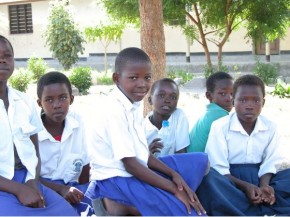Almost a year has sped past since I attended the 2012 Education Budget debate in Tanzania's Parliament, the Bunge in Dodoma last year, in my first week's work. I was unable to make it this year, but it seems that the debate was heated as frustration and concern over declining standards of school education were raised by both opposition and government MPs.

The saga of the 2012 Secondary Form IV results continued to unravel with the recent release of the adjusted scores that increased the overall pass rate by about 10% from the results cancelled in February. MPs made clear that the problems contributing to poor learning could not be solved just by changing the examination board's process of converting marks to grades and the weighting of continuous assessment. Even with the increase of 10%, this is still 10% below the 2011 pass rate, a huge year on year drop and a clear symptom of systemic problems.The prominent civil society activist and head of TWAWEZA (that conduct the UWEZO East African assessments of learning) Rakesh Rajani announced he was withdrawing from the PM's commission of enquiry and released a detailed account of long term decline in education that no amount of ‘re-grading’ could solve.
To add fuel to the fire the issue of poor quality textbooks was raised, with the government announcing the dissolution of the EMAC committee responsible for vetting and approving textbooks for use in schools. Glaring errors were presented in the Parliament: 2 x 7 =15 in a Mathematics textbook and even the misspelling of 'Jiografia' (Geography in Swahili) on the front cover of one textbook edition.
Minister of Education Dr. Kawambwa has vowed to increase both primary and secondary examination scores, with the Big Results Now initiative prioritising a series of actions to fast track around some of the main issues of concern.
Away from the spotlight of MP outrage it is perhaps worth reflecting on the positive trends of transparency and more open government and data. The very fact that civil society, parliamentary and media interest have led to public demand and government action is reassuring. Tanzania will increasingly have to reform and adjust its institutions and ways of working to keep pace with its fast growing, young population who aspire for better education, jobs and prosperity.

Recent Comments